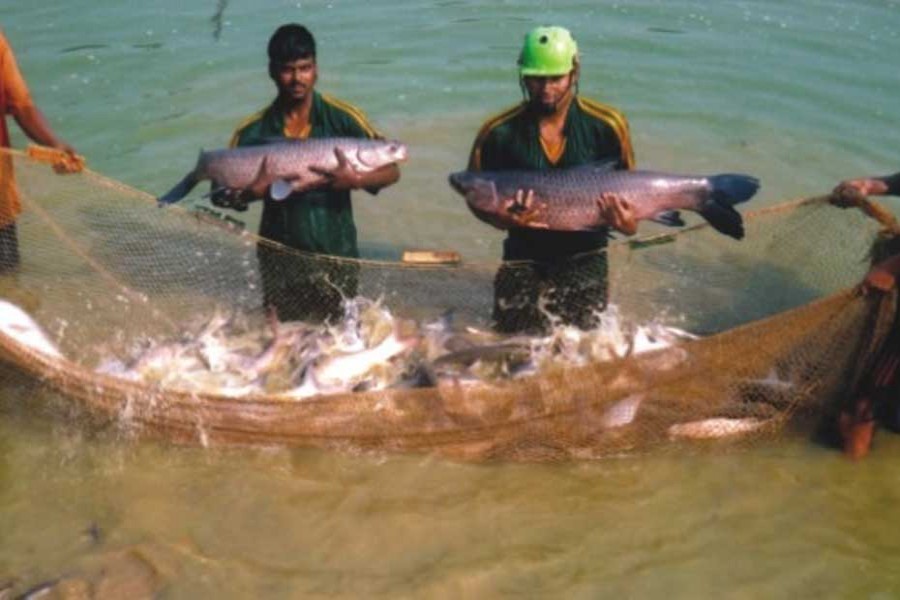As has been the case with organic vegetables, demand has outstripped supply in fresh water fish resulting in the fish being largely unavailable. On fisheries day dignitaries smile to the cameras in releasing fish fry in ponds and enclosed water bodies but the rivers are not being used for natural multiplication. Canals and river diversions as a result of complex water sharing exercises contribute further to the phenomenon to the extent that the famous Hilsa fish is reportedly more available in the rivers running through the Indian states of Assam and others. The government's commendable move of a Jhatka catching ban with adequate compensation to fishermen hasn't worked as well as expected resulting in fewer of the fish growing to full size.
Unfortunately the focus has been on Hilsa alone with all other foreign varieties replacing previously country variety of fish not being cultivated enough. The output is meeting protein requirements through cultivated fish, especially prawns but the vital nutrients of fresh water fish is being denied the population. Experts argue there isn't enough fresh fish to go around and that's a given. What isn't addressed is the attempt to release fry in the rivers even if artificially cultivated. That allows for the natural environment providing for the essential nutrients that give fresh water fish its taste. Our rivers are cleaner than the Ganges in India thereby producing Hilsa that whets the taste but doesn't have the same freshness as ours. These make up a significant export to West Bengal and are then channelled in market streams that pronounce the origin. It's one case where the rules of origin turn out to be so important.
Enclosed water bodies are simply not the answer for indigenous protein made up from imported tadpoles of the native varieties of country fish such as Koi, Magur and Shing. These may attract in terms of size and thereby quantity but the essence — the taste — is nowhere near to the local variety. Unfortunately even the once-famed sweet water fish are being imported to meet requirements. The freshness factor is further complicated by the onset of cold storages where at times of over harvesting, the Hilsa lands up and is then released gradually by the coteries that control the sector. In the absence of working cooperative fisheries systems the matter is likely to get worse. Fishermen have a trade to ply and they have found their own way around the Jhatka bans on using current nets in off-season fishing. That this destroys the ecosystem in riverine and to an extent, sea resources is lost on them for all the illegality of current nets. That such fish poses a health threat is also lost on them with the consumer no wiser. The government with its stretched resources and the usual inefficiency is unable to break up the coterie interests involved. Whenever there's a 'catch', heads roll knowingly.
Investments are made in technical and research laboratories but similar if not more of these is required to prevent rivers from encroachment and inculcate the culture of releasing fry in sweet, fresh waters.


